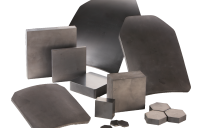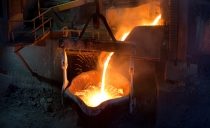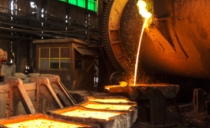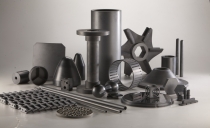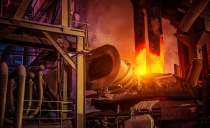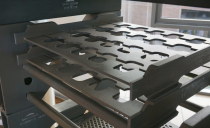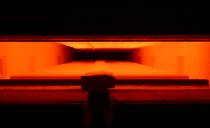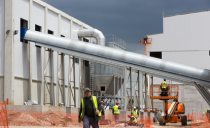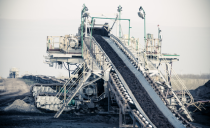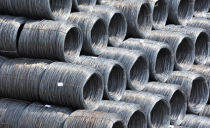Silicon Carbide (SiC)
Ceramics materials
Silicon carbide (SiC) is a synthetic, semiconducting fine ceramic that excels in a wide cross-section of industrial markets. Manufacturers benefit from an eclectic offering of silicon carbide grades due to the availability of both high-density and open porous structures. Combined with the material’s outstanding high-temperature strength and thermal shock resistance, alongside inherently impressive mechanical properties, silicon carbide is one of the most versatile refractory ceramics worldwide.
Silicon Carbide: Grades, Formats & Bonding Types
Saint-Gobain has spent years developing a uniquely broad understanding of the thermomechanical and chemical properties of silicon carbide ceramics developed via numerous distinct manufacturing avenues. As a result, Saint-Gobain has now positioned itself as one of the foremost silicon carbide ceramic suppliers worldwide. With a selection of industry-trusted products on offer, Saint-Gobain routinely services demanding application areas with uniquely tailored solutions.
- Sintered SiC
- Siliconized SiC
- Recrystallized SiC
- Silicon Oxynitride Silicon Carbide
- Nitride bonded Silicon Carbide
- SiAlON Silicon Carbide
Sintered Silicon Carbide SSiC, like Saint-Gobain’s proprietary Hexoloy® brand, is produced at extremely high temperatures (~2,000°C) in inert atmospheres using a range of forming methodologies, including dry-pressing and extrusion. Reaction bonded, or siliconized, silicon carbide is formed using a porous carbon feedstock and molten silicon via additive forming, casting or extrusion. Each of these fully-densified silicon carbide ceramics achieves exceptional chemical and mechanical properties in extreme end-use temperatures exceeding 1,400°C (2,552°F).
Our brands based on Sintered Silicon Carbide:
Reaction bonded, or siliconized, is formed using a porous carbon feedstock and molten silicon via additive forming, casting or extrusion. Each of these fully-densified silicon carbide ceramics achieves exceptional chemical and mechanical properties in extreme end-use temperatures exceeding 1,400°C (2,552°F).
Manufacturing Hexoloy®
How do we make Hexoloy® ceramic material?
Forming
Economical forming is determined by volume and tolerances of the final part. Dry pressing to size is the most economical forming method for volumes of 300 pieces or more, which help to justify the initial expense of tooling designed specifically for each part. Isostatic pressing is suited to low volumes and prototype items.
Pre-Sinter (Green) Machining
Machining in the pre-sintered, or green, state is often desirable because it allows manufacturing of finished shapes without expensive grinding of sintered material. Green machining is accomplished using conventional processes. Stock removal can be accomplished 15 times faster in the green state than in the sintered state. Green machining provides parts to tolerances of 0.5 percent to 1.0 percent of their final dimensions. Typical green machined surface finishes range around 32 to 64 microinches.
Grinding / Finishing
Precision grinding capabilities have been developed to meet the exacting specification requirements requested by the automotive, aerospace and nuclear industries. Saint-Gobain has the expertise to grind to close tolerances on most shapes (.0005"). Typical ground parts hold finishes of 16 or better microinches. When surface finishes are critical to improve friction and wear performance, finsihing operations can improve surfaces up to 4 microinches providing surface flatnesses to one helium light band.
Quality Assurance
Our company mission is to maintain the highest level of quality for our customers. Saint-Gobain has state-of-the-art nondestructive evaluation equipment for final quality inspections of internal structures. These include bulk and surface wave ultrasonics, fluorescent dye penetrant, radiography, acoustic emission and photomicrography.
Related Solutions
Armor
Saint-Gobain Performance Ceramics & Refractories is a world-leader in the delivery of innovative, reliable and consistent ceramics for composite armor...
Carbon Black
Discover Saint-Gobain Performance Ceramics & Refractories’ comprehensive range of carbon black refractory solutions for tread and carcass reactors.
Filtration
Crystar® Filtration Technology provides highly efficient microfiltration with consistent retention, low energy consumption and excellent filtrate quality...
Foundry
Saint-Gobain Performance Ceramics & Refractories leverages its extensive expertise to provide innovative, reliable refractory solutions for all ferrous and...
Petrochemistry, Syngas and Hydrogen
Saint-Gobain Performance Ceramics & Refractories offers unparalleled refractory lining design, engineering, products and services to the global...
Primary and Secondary Copper Furnaces
Refractory materials from Saint-Gobain Performance Ceramics & Refractories offer excellent performance and extended service life in the most critical...
Specialty Ceramics
Saint-Gobain Performance Ceramics & Refractories’ extensive range of specialty ceramic products – ideal for use in the harsh environments typical in broad...
Steelmaking
Refractory materials from Saint-Gobain Performance Ceramics & Refractories' offer excellent performance and life in steel making applications.
Systems for Kilns & Furnaces
Discover Saint-Gobain Performance Ceramics & Refractories’ comprehensive range of ceramic products and solutions - designed, developed, and manufactured...
Total Burner Solution for Energy Efficiency and Carbon Reduction
Discover Saint-Gobain Performance Ceramics & Refractories’ extensive range of total burner solutions for industrial heating applications.
Waste to Energy Solutions with Silicon Carbide
Discover Saint-Gobain Performance Ceramics & Refractories’ range of high performance refractory solutions for thermal waste treatment in waste to energy...
Wear Resistant Technologies
Saint-Gobain Performance Ceramics and Refractories have developed a range of wear resistant technologies using alumina oxides (Al2O3 and ZTA) as well as...
